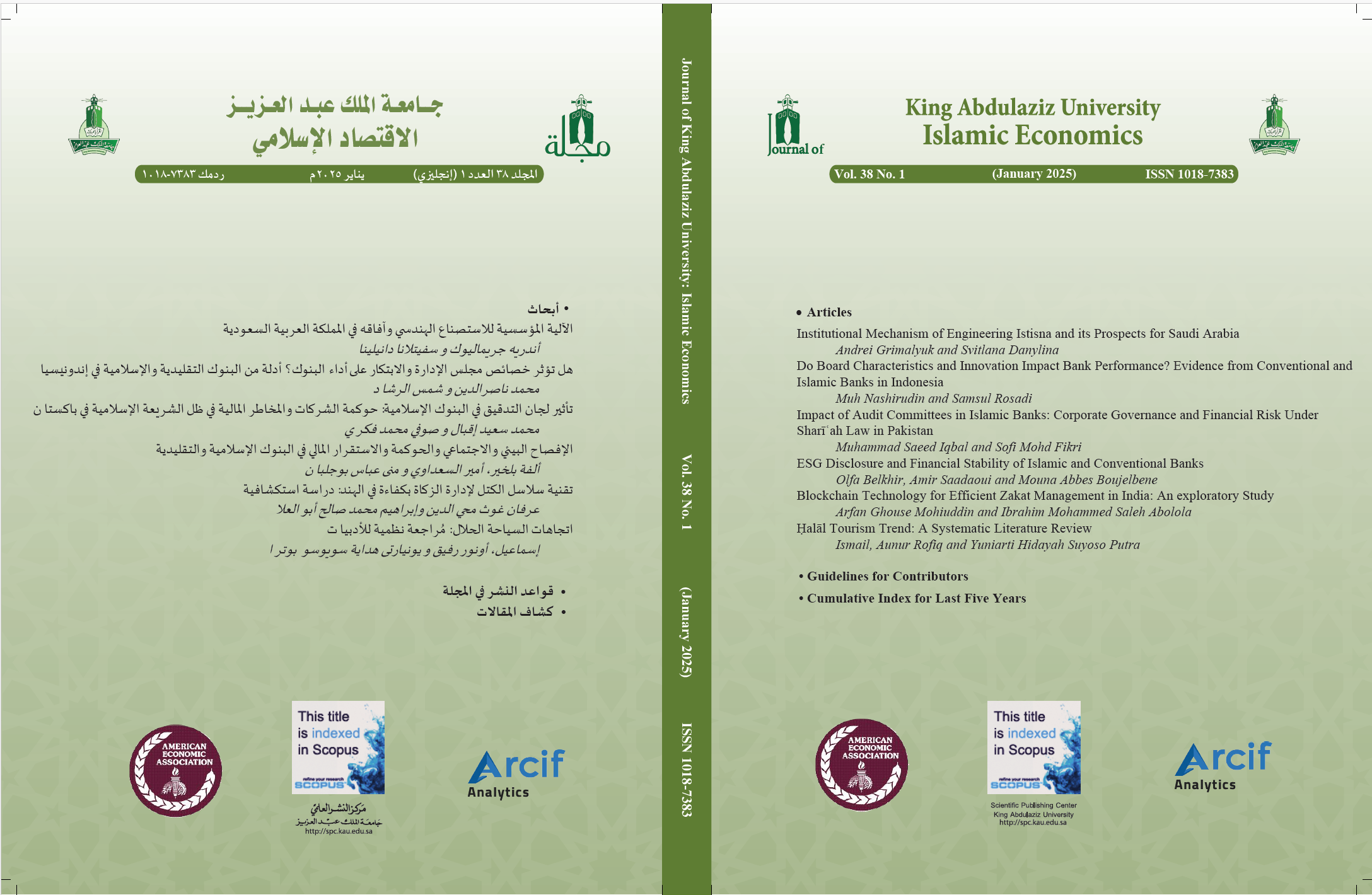Do Board Characteristics and Innovation Impact Bank Performance? Evidence from Conventional and Islamic Banks in Indonesia
Main Article Content
Abstract
This study aims to analyze the impact of board characteristics, innovation, and the role of the Sharia Supervisory Board (SSB) on bank performance in Indonesia, with a focus on comparing conventional and Islamic banks. Using panel data from 286 bank observations over the period 2010–2020, the study employs panel regression methods and the Generalized Method of Moments (GMM) to address potential endogeneity issues. The findings reveal that the size of the board of commissioners has a significant positive effect on the performance of Islamic banks, while gender diversity in the board of directors generally has a positive impact on overall bank performance. The educational background of board members shows complex and varied effects between conventional and Islamic banks. Innovation demonstrates a significant positive effect on the performance of Islamic banks in additional tests. Furthermore, the moderating role of the SSB in the relationship between innovation and the performance of Islamic banks is highlighted: the size of the SSB tends to weaken the influence of innovation, whereas gender diversity within the SSB strengthens it. These findings have important implications for bank management practices, the development of Islamic banking governance theory, and banking sector regulations. The study underscores the necessity of considering structural differences between conventional and Islamic banks when designing governance policies.

